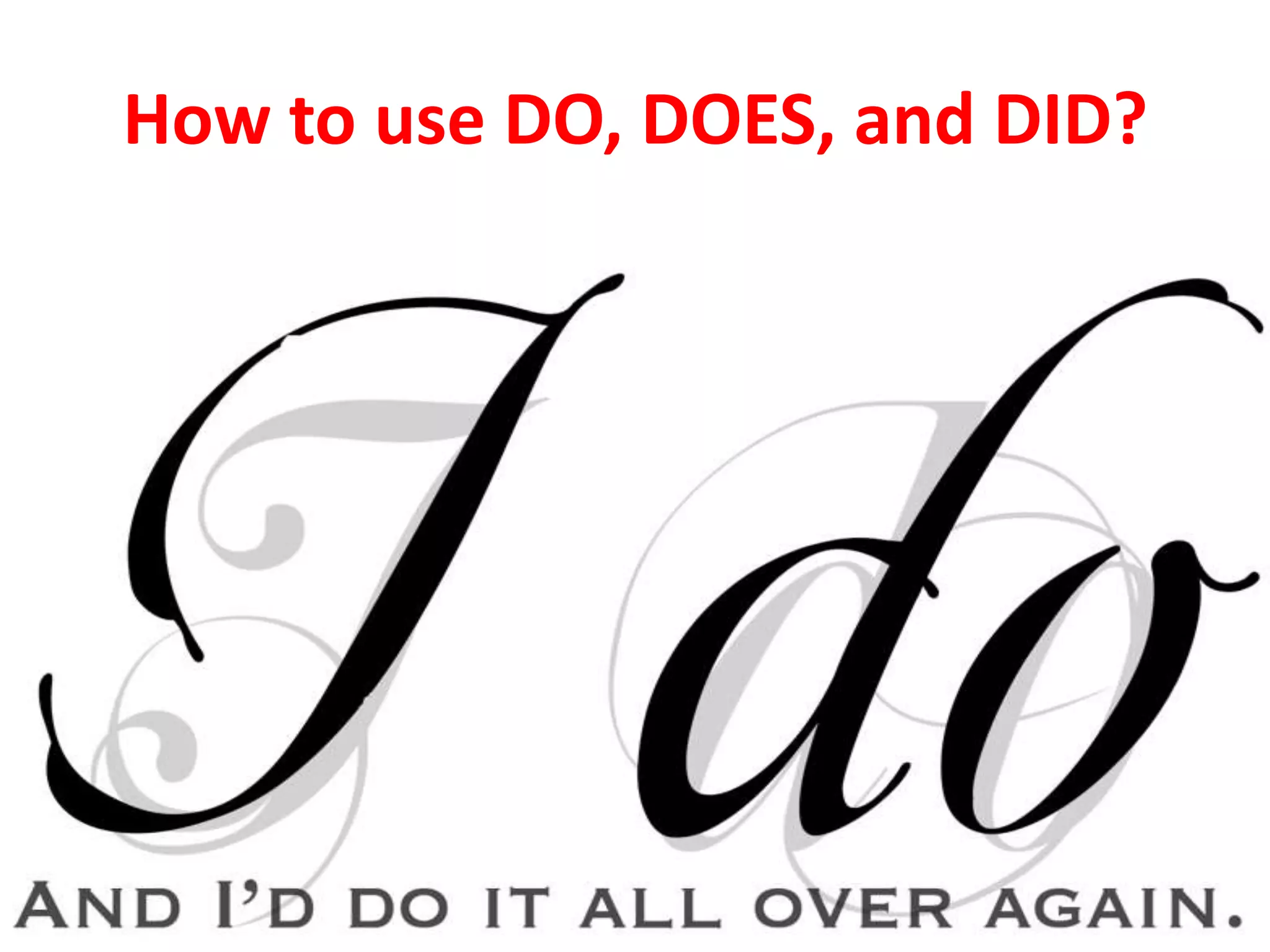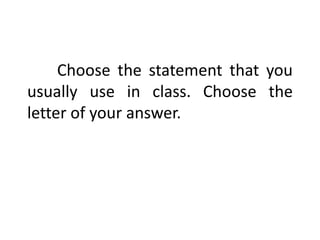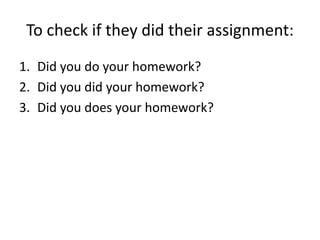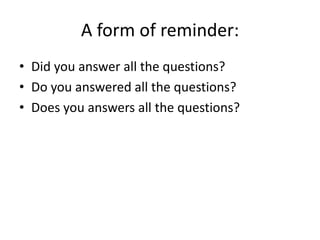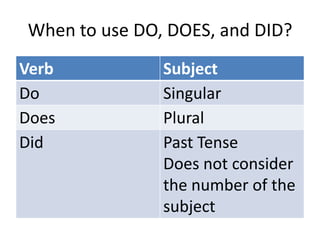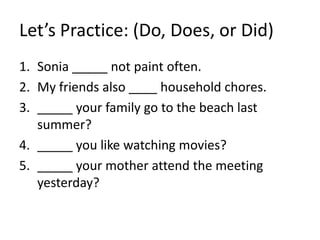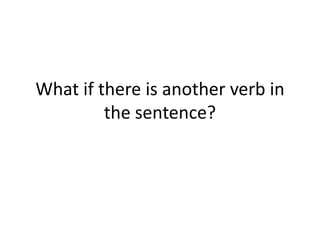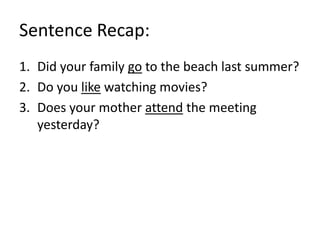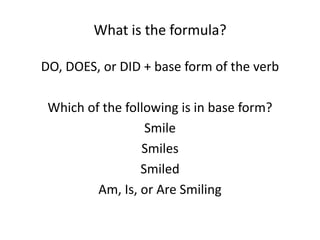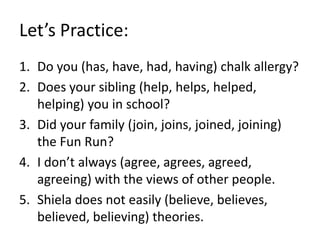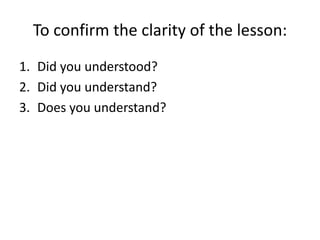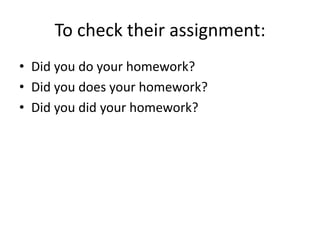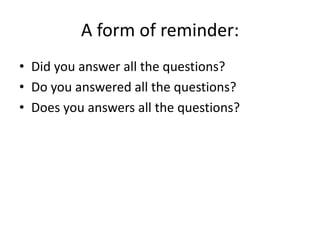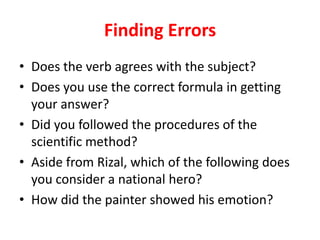This document provides instruction on how to properly use the verbs "do", "does", and "did" in sentences. It explains that "do" is used for singular subjects, "does" is used for plural subjects, and "did" is the past tense form. Examples are provided to demonstrate the correct usage of these verbs in different contexts like checking homework, asking questions, and giving reminders. Readers are taught the formula of using the base verb form after "do", "does", or "did". Common errors are highlighted and the document ensures understanding through additional examples and recaps.
